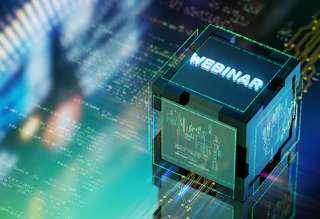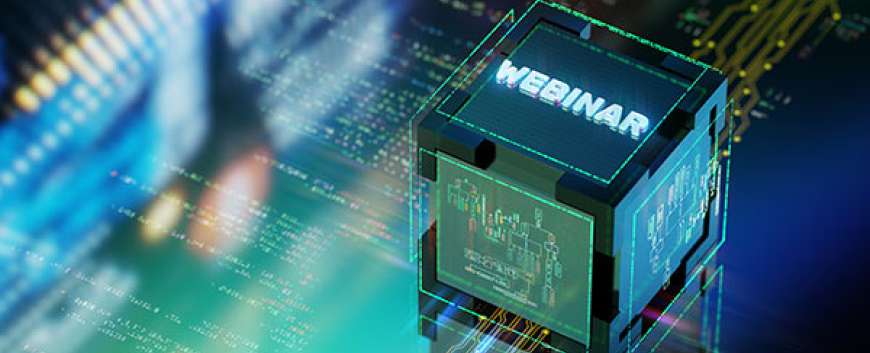SPS BSI Webinar: Unlocking Precision Mental Health with Data-Driven Neuroimaging Biomarkers
Date: 25-July-2025
Time: 1:00 PM ET (New York Time)
Presenter: Dr. Yu Zhang
Meeting information:
Meeting number: 2536 507 0937
Password: MAtzrvkf622 (62897853 when dialing from a phone or video system)
Join by phone:
+1-415-655-0002 US Toll
Access code: 253 650 70937
https://gsumeetings.webex.com/gsumeetings/j.php?MTID=m556784be8386ce1def54b6f7d395bf1f
Join us Friday, July 25th, 2025, at 1:00 PM ET for an exciting virtual talk by Dr. Yu Zhang entitled: “Unlocking Precision Mental Health with Data-Driven Neuroimaging Biomarkers” as part of the activities of the Brain Space Initiative, co-sponsored by the Center for Translational Research in Neuroimaging and Data Science (TReNDS) and the Data Science Initiative, IEEE Signal Processing Society.
Abstract
Unlocking Precision Mental Health with Data-Driven Neuroimaging Biomarkers
Mental disorders are among the most common illnesses across the lifespan and the leading cause of ill health and disability worldwide. Conventionally, mental disorders are diagnosed by a combination of clinical symptoms. However, the subjective diagnostic framework has caused substantial clinical and neurobiological heterogeneity and largely ignored the frequent comorbidity among diseases. These limitations hinder the understanding of mechanisms underlying the diseases and the search for the right treatment solutions. With the rapid development of neuroimaging technologies, increasing large-scale non-invasive in-vivo neural data has been continually produced worldwide and provides rich resources for the exploration of data-driven objective biomarkers for improved mental health. By exploiting the complex brain imaging data including EEG and fMRI, artificial intelligence (AI) techniques have attracted the increasing interest of researchers in the fields of smart healthcare and neural engineering. Exploring new theories and applications from the perspective of machine learning/AI may bring unprecedented benefits to establish robust neurobiomarkersfor more precise diagnosis, prognosis, and treatment selection, toward precision medicine for mental disorders. In this talk, I will present some of our recent work on neural pattern decoding, brain connectome modeling, and neurobiomarker discovery by leveraging cutting-edge machine learning and data-driven techniques. The presentation topic will cover latent-space biomarker quantification, predictive modeling of brain networks, and unsupervised disease biotyping, for precision diagnosis and personalized treatment of mental disorders.
Biography
Dr. Yu Zhang
Yu Zhang received the Ph.D. degree in control science and engineering from the School of Information Science and Engineering, East China University of Science and Technology (ECUST), Shanghai, China, in 2013.
He is currently an Assistant Professor of Psychiatry and Behavioral Sciences at Stanford University School of Medicine. Before joining Stanford, he was a tenured Associate Professor of Bioengineering and of Electrical and Computer Engineering at Lehigh University. He was also a Postdoctoral Research Fellow in the Department of Psychiatry and Behavioral Sciences at Stanford University, and in the Biomedical Research Imaging Center at the University of North Carolina, Chapel Hill. In the past decade, he has been mainly working on data-driven neural pattern decoding and biomarker discovery using multimodal neuroimaging techniques for personalized medicine of mental disorders. His research interests include computational neuroscience, machine learning, brain-computer interaction, biomedical signal processing, and medical imaging computing.
Dr. Zhang is the author of over 140 peer-reviewed papers that have been published in prestigious journals and conferences, such as Nature Biomedical Engineering, Nature Mental Health, Nature Human Behaviour, Nature Biotechnology, JAMA Network Open, Cell Reports Medicine, Molecular Psychiatry, Proceedings of the IEEE, IEEE Trans. Pattern Anal. Mach. Intell., ICML, MICCAI, and AAAI. He is a Senior Member of the IEEE and serves as Associate Editor for Journals including Frontiers in Neuroscience, Network Modeling Analysis in Health Informatics and Bioinformatics, and Frontiers in Computational Neuroscience.
Recommended Articles:
• Fonzo G, Etkin A, Zhang Y, Wu W, Cooper C, Chin-Fatt C, Jha MK, Trombello J, Deckersbach T, Adams P, McInnis M, McGrath PJ, Weissman MM, Fava M, Trivedi MH. Brain regulation of emotional conflict predicts antidepressant treatment response for depression. Nature Human Behaviour, 2019, 13: 1319-1331. (Link to Paper).
• Wu W, Zhang Y, Jiang J, Lucas M, Fonzo G, Rolle C, Cooper C, Chin-Fatt C, Krepel N, Cornelssen C, Wright R, Toll R, Trivedi H, Monuszko K, Caudle T, Sarhadi K, Trombello J, Deckersbach T, Adams P, Weissman M, Fava M, Pizzagalli D, Arns M, Trivedi M, Etkin A. An electroencephalographic signature predicts antidepressant response in major depression. Nature Biotechnology, 2020, 38(4): 439-447. (Link to Paper).
• Zhang Y, Wu W, Toll R, Naparstek S, Maron-Katz A, Watts M, Gordon J, Jeong J, Astolfi L, Shpigel E, Longwell P, Sarhadi K, El-Said D, Li Y, Cooper C, Chin-Fatt C, Arns M, Goodkind M, Trivedi M, Marmar C, Etkin A. Identification of psychiatric disorder subtypes from functional connectivity patterns in resting-state electroencephalography. Nature Biomedical Engineering, 2021, 5: 309-323. (Link to Paper).
• Zhang Y, Naparstek S, Gordon J, Watts M, Shpigel E, El-Said D, Badami F, Eisenberg M, Toll R, Gage A, Goodkind M, EtkinA, Wu W. Machine learning-based identification of a psychotherapy-predictive electroencephalographic signature in PTSD. Nature Mental Health, 2023, 1(4): 284-294. (Link to Paper).
• Zhao K, Xie H, Fonzo GA, Tong X, Carlisle N, Chidharom M, Etkin A, Zhang Y. Individualized fMRI connectivity defines signatures of antidepressant and placebo responses in major depression. Molecular Psychiatry, 2023, 28: 2490-2499. (Link to Paper).













